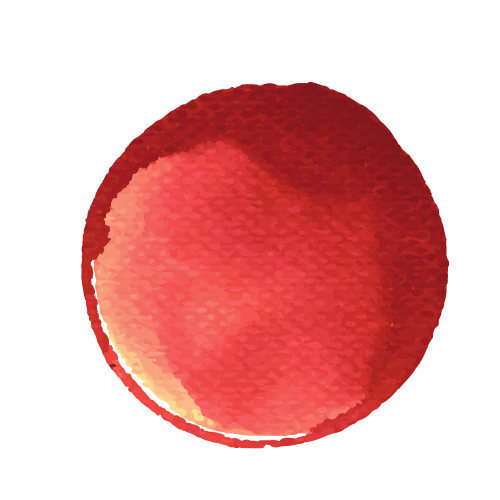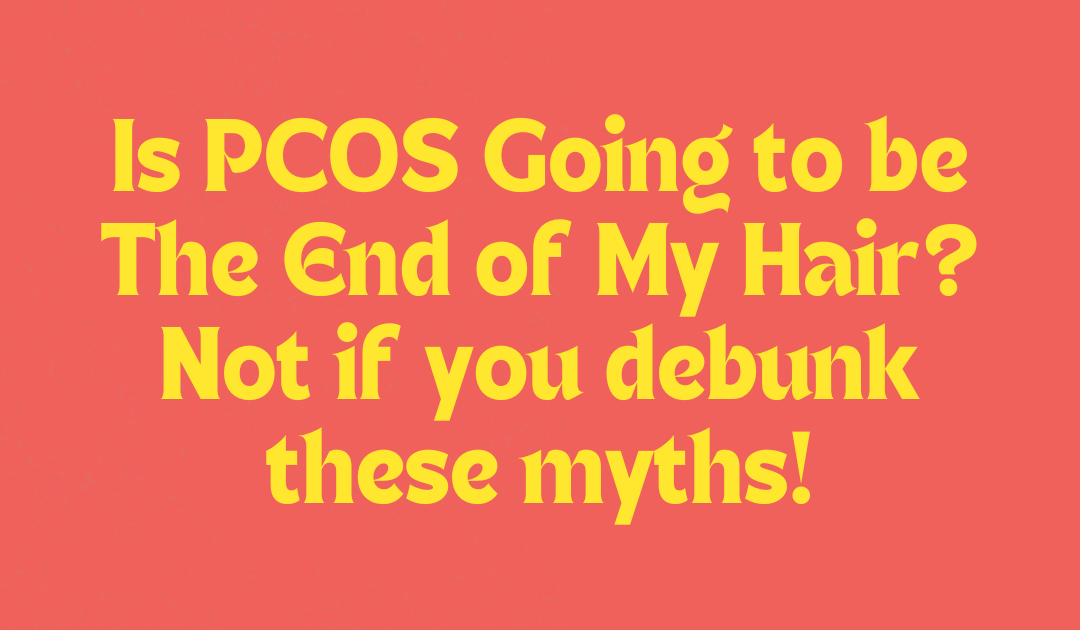PCOS (Polycystic Ovary Syndrome) is like that one unexpected guest who always overstays their welcome — unpredictable, persistent, and always finding new ways to complicate your life. Among its long list of surprises is hair loss, a symptom that can be especially distressing for women. While losing hair is never easy, the myths surrounding PCOS-related hair loss only make it harder to deal with.
If you’re an urban woman juggling a fast-paced lifestyle, you’ve probably Googled quick fixes and felt overwhelmed by conflicting advice. Don’t worry—we’re here to cut through the noise and debunk some myths and give you the real deal about PCOS hair loss.

Understanding the Roots of the Problem
Before we dive into the myths, let’s understand the mechanics behind PCOS-related hair loss. PCOS disrupts the delicate hormonal balance in your body, leading to an overproduction of androgens (male hormones). These androgens can wreak havoc on your hair follicles, causing them to shrink and produce thinner, weaker hairs. This can manifest in a few ways:
- Female Pattern Baldness (Androgenetic Alopecia): This is the most common type, characterized by gradual hair thinning, often around the crown or temples.
- Telogen Effluvium: This occurs when a significant number of hair follicles prematurely enter the resting phase, leading to sudden and excessive hair shedding.
Now let’s look into some common myths surrounding PCOS-related hair loss in women.
Myth: No one is spared
Not true! While hair loss is a common symptom of PCOS, it doesn’t affect everyone. Many women with PCOS have elevated androgen levels, which can lead to female pattern hair loss. However, the degree of androgen excess varies among individuals, and not all women with PCOS will experience significant hair thinning.
So, if your best friend with PCOS has thick, luscious locks while yours feel like they’re thinning, don’t panic. Focus on managing your overall health rather than comparing symptoms.
Keep a journal of your symptoms. Tracking changes over time can help identify what’s triggering your hair loss and make it easier to work with a healthcare professional. Remember, PCOS shows up differently in everyone.
Myth: Once It’s Gone, It’s Gone Forever
This one’s big, and it’s absolutely false. Hair loss caused by PCOS can often be slowed down or even reversed with the right approach. Treatments like hormonal therapy, lifestyle changes and dietary adjustments, can make a significant difference.
Start early! The sooner you address the problem, the better your chances of recovery. Focus on a balanced diet that includes essential nutrients for hair health, such as zinc, iron, omega-3 fatty acids, and vitamins. Incorporate foods like almonds, walnuts, eggs, and flaxseeds into your diet.
Consult a dermatologist or endocrinologist to find the treatment that works for you.

Myth: PCOS Means a Beard is in My Future
Nope! PCOS affects women differently, and hirsutism (excess hair growth in places like the face or chest) isn’t guaranteed. Factors such as ethnicity and individual hormonal profiles can influence whether a woman experiences excessive hair growth alongside hair thinning. You can have hair thinning on your scalp without experiencing hirsutism, or vice versa. Remember, PCOS symptoms are as diverse as the women who experience them.
If you’re dealing with hirsutism, consult a dermatologist. They can offer effective solutions tailored to your needs.
Myth: Genetics Are the Sole Culprit
Genetics can be a contributing factor, but they’re not the only player in this game. Hormonal changes associated with PCOS, particularly increased levels of androgens, play a significant role in causing female pattern baldness.
So instead of shifting the blame to something that you cannot control, focus on addressing what you can do. Hormonal balance is key, and that starts with managing your PCOS holistically through diet, exercise, and stress management.
Add yoga or mindfulness exercises to your routine. Stress can exacerbate hormonal imbalances, so finding ways to relax is even more essential.

Myth: Quick Fixes Will Save the Day
If only it were that easy! Those miracle shampoos and Instagram ads promising to grow your hair overnight? They’re mostly marketing gimmicks. PCOS hair loss requires a long-term, holistic approach that combines proper medical care, a balanced diet, and stress management.
Be patient. Real progress takes time, but it’s worth the effort.
How to Identify what to believe?
The internet is a double-edged sword. While it’s great for learning, it’s also full of misinformation. Navigating through the sea of content can be tricky, especially when it comes to sensitive topics like PCOS and hair loss. So, how can you tell what’s legit and what’s misleading?
- Look for Trusted Experts: Dermatologists, endocrinologists, and nutritionists are your go-to sources for accurate advice. Avoid self-diagnosing based on unverified articles or videos.
- Check Peer-Reviewed Studies: Reliable blogs and articles will often cite credible research. If a source lacks references or sounds overly generic, it’s best to dig deeper.
- Beware of Over-the-Top Claims: Miracle cures and instant solutions are often red flags. Remember, PCOS management is a long-term commitment, not a one-size-fits-all quick fix.
Taking care of your emotions is important too
Hair loss isn’t just physical—it can take a toll on your confidence and mental health. If you’re feeling overwhelmed, consider talking to a therapist or counselor. Stress and anxiety can worsen hormonal imbalances, creating a vicious cycle. Breaking this cycle starts with self-care.
It’s also helpful to connect with others who share similar experiences. Online support groups or local communities for women with PCOS can be invaluable. These platforms often provide a wealth of shared knowledge, practical tips, and emotional support. Learning from the successes and challenges of others can empower you to make informed decisions about your health journey.
Building a strong support system, whether through friends, family, or online communities, can also help you navigate the challenges of hair loss and PCOS. Sharing your experiences and hearing others’ stories may offer both comfort and practical solutions.
Dealing with PCOS-related hair loss can feel overwhelming, but remember—you’re not alone. With the right information, lifestyle changes, and medical support, you can tackle this head-on (pun intended!).
Start by debunking the myths, take proactive steps, and consult a healthcare professional for a treatment plan that works for you. Your hair health is a journey, not a sprint, so stay consistent and kind to yourself.
You’ve got this!
Disclaimer:
This is for informational purposes only. Always consult a healthcare professional for personalized guidance.

